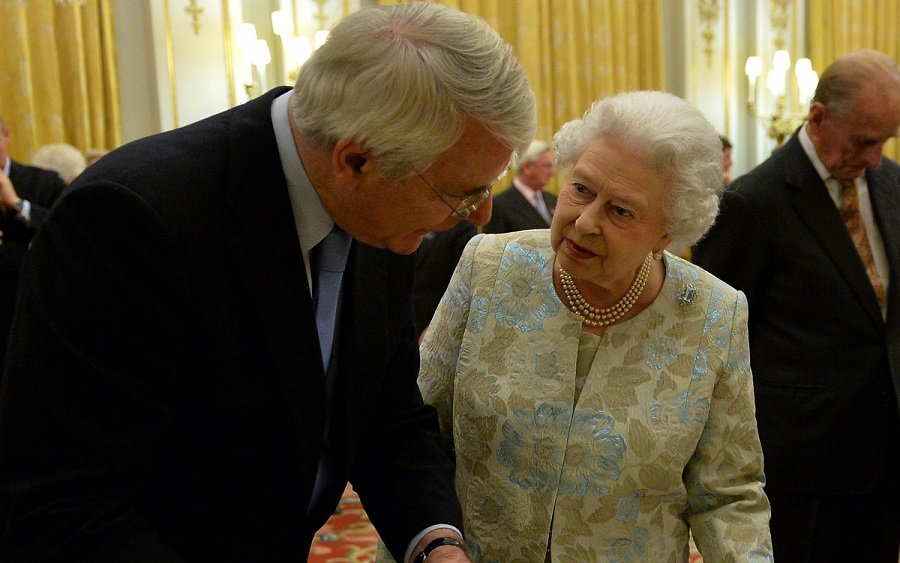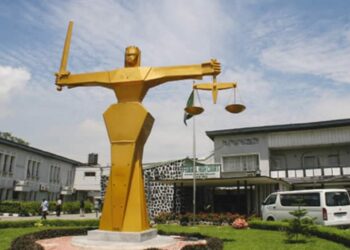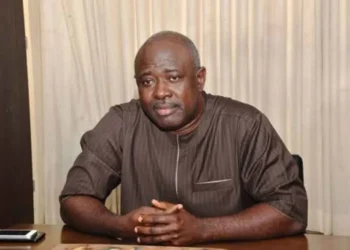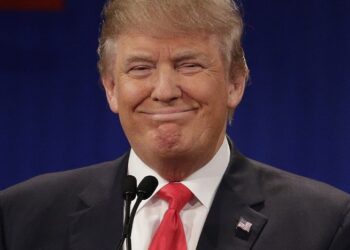Documents have shown how the British government protected Nigeria from trade sanctions in the interest of Shell. Britain allegedly shielded Nigeria after the late military ruler, General Sanni Abacha hanged Ken Saro-Wiwa and eight other members of Nigeria’s Ogoni community for protesting against the company’s operation in the ’90s.
It disclosed that the UK government delayed and spoke against sanctions such as oil embargo and trade sanctions as it posed a risk to the operations of Shell if approved. Shell was considered as one of the major investments of UK that could be affected.

South Africa’s former President, late Nelson Mandela, criticised the 1995 killing of the Ogoni 9 that protested against energy firms in the oil-rich Niger Delta. Mandela suggested trade sanctions and oil embargo was the best response to the killing but the UK stood in the way until Abacha died in 1998. This recent revelation was made known by documents declassified and reported by dailymaverick.
How UK prevented sanctions: While UK government condemned the killing in public, calling for a “fundamental and lasting change in the way Nigeria is governed”, the officials of the UK government were moving in a different path that led away from actions that reflect justice for the Ogoni 9.
Britain gathered a list of UK investment which summed up their value to £5 billion. Shell at the time was producing half of Nigeria’s two million barrels per day output and was “interested in Nigeria’s gas reserves” and was close to having “the largest industrial project in Nigeria this century,” one file stated.
[READ MORE: U.S companies in Nigeria created over 3 million jobs, generate N1.4 trillion revenue- ABC)
The UK also compiled a list of possible sanctions after the killings, listing sanctions that would affect its interest, most especially Shell’s commercial operation.
The prime minister’s office was told by the private secretary to foreign secretary, Malcolm Rifkind that, “We believe we should hold in reserve for the time being any measures of this kind—which would of course place a disproportionate burden on the UK because of our close ties with Nigeria.” Freezing financial assets of Nigerian leaders was also mentioned.
Part of UK’s consideration was to position the sanction as a negative impact on the poor population in Nigeria although UK was more worried about Shell’s interest than it was of Nigeria. The Prime Minister’s private secretary, Edward Oakden, considered if the same argument used to avoid boycott against South Africa’s apartheid government could be employed. The argument was, sanctions would “hit hardest the poor people least able to cope.”

In order to put pressure on the UK government to support sanctions, Mandela told the UK Prime Minister, John Major, via phone on November 18, 1995, to cut off trade with Nigeria. Although, the PM replied that, “we would consider this”, he said he “did not have a closed mind about trade sanctions.” UK kept holding off Mandela on the two occasions (including 28 November 1995) they interacted on the matter of sanctions against Nigeria.
A week after the execution, Conservative peer, Lynda Chalker had told senior Shell executive, John Jennings, that UK was “resisting pressure coming from the South Africans and some European partners for further economic sanctions” on Nigeria.
It kept close contact with Shell executive, including the then-managing director of Shell Nigeria, who stated that the company was “obviously very concerned that Ogoni hot heads could react to targets of opportunity”. A note shared with the UK High Commission said in the declassified files.
Plan to rebrand Shell’s public image: With Shell’s image under scrutiny, the UK government weighed options on how to present the company to the public in order to avoid boycott due to its involvement in the case that led to the death of Ken Saro-Wiwa and the eight other Ogoni members. Chalker opined that Shell should “broadcast the facts about their wider contribution in Nigeria.”
The UK government also tried to pass a letter by Shell to Mandela through a third-party in order not to be assumed it’s taking Shell’s side. The letter conveyed the importance of Shell to Nigeria. “It should be passed to him [Mandela] but not specifically by us. We don’t want to appear to be endorsing Shell’s position”
[READ ALSO: ExxonMobil, Shell, Chevron delay $58.4 billion oil and gas investments in Nigeria)
Shell refused to take the blame for the oil leaks, stating in the letter that the leaks were caused by “sabotage”, adding that it was spending $120 million on environmental, health and education projects in Nigeria that year. This revelation by Shell’s letter impressed the UK government, with Oakden stating that he was “struck by the size of Shell Nigeria’s annual expenditure on environmental projects”.
Just like Mandela, Sweden also interceded, calling for global sanction, but Britain said the Swedes were being self-righteous. Sweden’s social democratic government had called for a “package of sanctions which would make a real impact on the Nigerian regime, not just play to the domestic gallery,” demanding more than visa restrictions and an arms embargo.

But in response, British diplomats said, “Bloody cheek, Swedish – Nigerian trade = 0”, while another claimed it was “The Swedes at their sanctimonious worst. They used to behave like this over South Africa.” Another UK official said, “Unbelievable. On second thoughts, all too believable. I constantly underestimate the Nordic capacity to posture, while others bear the practical consequences.”
The talk for decisive sanctions like oil embargo continued to be tossed around until General Abacha died in June 1998 before the international community could reach agreement on oil sanctions. It was disclosed that days before Abacha died, European Union was deliberated on the matter again.















.gif)







Of course, most western powers always put their national interests first in most of their diplomatic relations. African countries should also learn to do the same if they want to move forward because Europeans, Americans and the Chinese would not abandon their own national issues and interests to develop us.